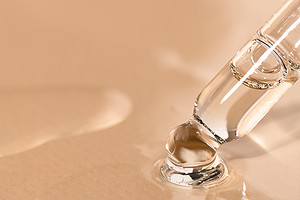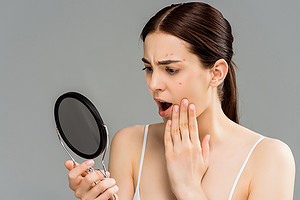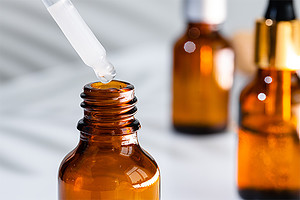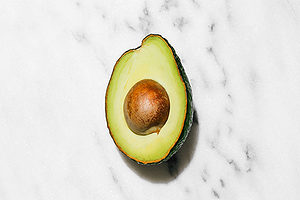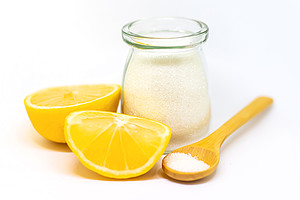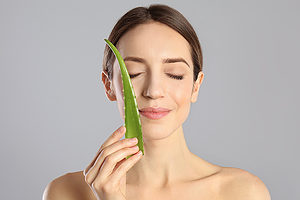Some people may want to avoid toners, fearing they may dry out the skin, causing irritation or flaking. In such cases, you can use cream cleansers, glycerin, and hyaluronic acid-rich products with oil-based moisturizers to combat dryness. Avoid alcohol-based products and harsh soaps.
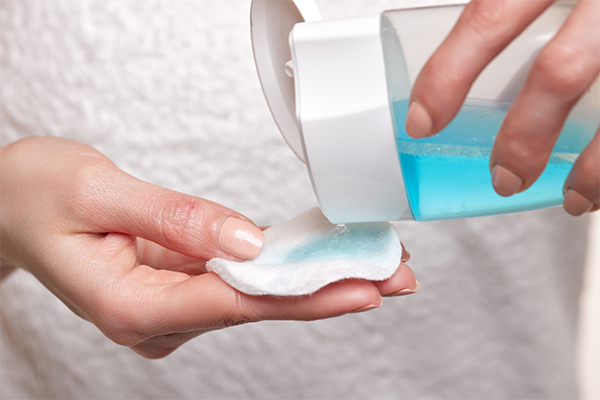
However, toners are made for every skin type, whether oily or dry. Avoiding toners might be a disservice to your dry skin.
Continue reading to learn more about toners for dry, sensitive skin.
Article Contents
Why Should You Use Toner for Dry, Sensitive Skin?
The following are the reasons to use toner for dry, sensitive skin.
1. Toners provide moisturization and hydration
Applying a toner repeatedly instead of spraying water is beneficial for skin hydration. (1) Hydrating toners are used to improve skin refreshment and hydration rapidly.
Toners are of three types, namely, exfoliating toners, hydrating toners, and treatment toners. They contain moisturizing ingredients such as glycerin and hyaluronic acid that eliminate tight skin sensations. These moisturizers contain essential ingredients such as water and oil. They hydrate the skin’s outermost layer (epidermis). (2)
A test conducted in 2021 showed that after toner gel application, a smear was formed on the skin that was aqueous or oily. (3) Thus, gel toners are suitable for dry, sensitive skin.
Note: In an aqueous solution, the solvent is liquid water, which is beneficial for dry, sensitive skin.
2. Toners balance the pH of dry, sensitive skin
Elderly skin is dryer and prone to cracking with slow recovery time due to alkaline damage. Thus, selecting a product with a pH value of 4-7 is crucial for them. (4)
Topical products must have pH values ranging from 4 to 6 and be acidified. (5) The normal skin pH range is 4.5 to 6.5. A pH range of 4.5-6.5 for cosmetic formulations is considered safe for the skin. (6)
Skin products with a pH of more than 7 can disturb the skin’s barrier function. (4) Products with a high pH increase the skin’s pH, increasing the chances of irritation, and dehydrating effects. (7)
If your skin is alkaline, using a pH range of 9 or above can compromise your skin’s lipid layer, causing irritation and dryness. Therefore, maintain ideal pH levels. Retaining cutaneous pH (5.5 on the surface) helps maintain the integrity of the skin barrier and hydration levels. (8)
Toners with a pH range of 4-6 are ideal for dry, sensitive skin. Toners also balance the skin’s pH.
Gel toners have good homogeneity, spreadability, and pH range.
3. Toners have emollient properties
Emollients are directly applied to the skin to moisturize, hydrate, and soothe. Emollient therapy is the pillar of treating dry skin conditions such as atopic dermatitis (eczema), atopic eczema, and psoriasis (skin conditions that cause scaly patches, itchiness, and rash). (9)
Emollients make your skin’s outermost layer (stratum corneum) soft and hydrated. (10) An aqueous gel is a widespread emollient applied to relieve dry skin.
A 2021 report showed that herbal toners (3) hydrate dry, sensitive skin, making it slippery. Vitamin E toners also have strong hydrating, photo protective, anti-aging, and firming properties. (11)
4. Toners rejuvenate dry, sensitive skin
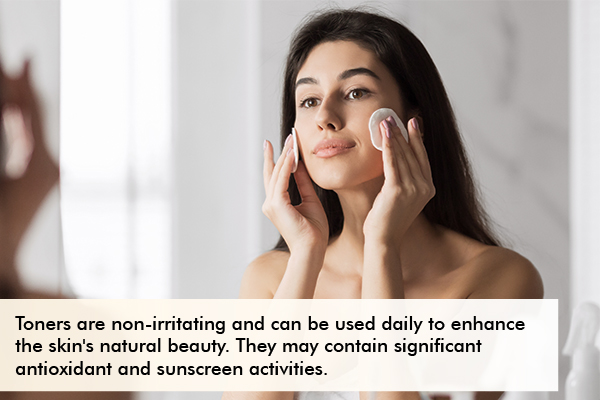
Herbal toners in gel form can improve the health of pale and dry skin and rejuvenate it. They also have astringent, calming, and smoothening effects on the skin.
Toners are non-irritating and can be used daily to enhance the skin’s natural beauty. They may contain significant antioxidant and sunscreen activities. (3)
5. Some toners contain hyaluronic acid
Hyaluronic acid is a powerful hydrating and moisturizing agent for dry, sensitive skin. (12) It can retain water. (13)
Hyaluronic acid, when combined with lidocaine or other co-agents, can effectively increase skin elasticity and tightness and can rejuvenate the face. (14)
Therefore, a toner containing hyaluronic acid can hydrate dry, sensitive skin.
About Toners
What is a toner?
A skin toner is a second cleansing agent that removes makeup residues after regular cleansing or excess facial sebum to prepare the skin for a nourishing treatment. (15)
Toners are categorized as alcohol or non-alcohol-based to suit different skin types, such as sensitive, oily, combination, (3) or dry skin.
What do toners do, and why do you need one?
Toners draw the last traces of skin impurities, grime, and dirt after cleansing. When you use toners regularly and include them in your skin care routine, you will notice improvements in the tightness and appearance of your pores Thus, reducing skin aging. (3)
Toner application is a preparation step for better absorption of moisturizing products and serum.
Gel toners have good homogeneity, spreadability, and pH range. Herbal toners in gel form can improve skin health and rejuvenate pale and dry skin. (3)
When should you use a toner?
Apply toner right after cleansing, as the active ingredients (such as glycolic acids, retinol, and vitamin C) work better on moist skin.
To apply a toner:
- Take a few drops of toner on a cotton pad or gauze pad.
- Apply it to your face and neck. Avoid the eye area.
- Allow it to dry. Do not wash it off. (3)(16)
Note: If you don’t have cotton pads, you can also use your hands to apply the toner.
Additional Benefits of Toners for the Skin
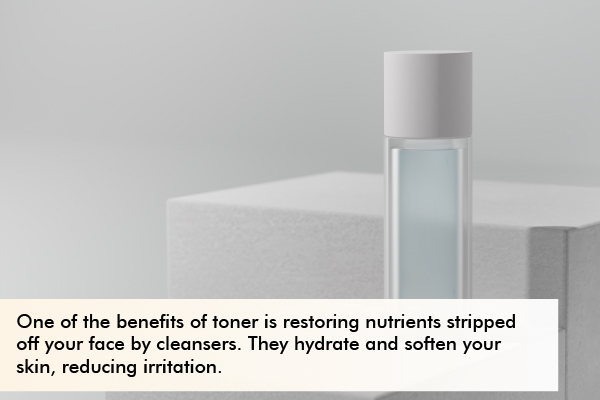
The following are the skin benefits of applying toner.
- Toners restore nutrients stripped off from your face by cleansers. They hydrate and soften your skin, reducing irritation.
- Toners make your pores look smaller, giving your skin a clean and smooth finish. It helps you get a smooth makeup base.
- Facial toners with zero alcohol are incredibly hydrating. Your moisturizer becomes more effective when you apply it directly on your toner-damp skin, as the toner helps absorb moisture and distribute it to every skin layer.
- Toners developed as cosmeceutical products with the therapeutic perks of herbal extracts from the barks, twigs, fruits, or leaves of plants to control oiliness.
- Safe and natural herbal skin toners with soothing, astringent, and calming effects reduce facial irritation and enhance the skin’s condition. (3)
Types of Toners and Their Effects
The different types of toners and their effects are as follows.
- Witch hazel is a primary ingredient of most toners. It is a botanical and natural astringent with anti-inflammatory properties that removes excess oil from the skin. (16) Witch hazel has also been used as an astringent to help treat skin issues such as acne. (17)
- A guava toner significantly reduces oil from the forehead (13.10 ± 3.67%, P < 0.05) and nose (21.43 ± 3.21%, P < 0.001) and is better than base toners. (18) A guava toner with antisebum properties eliminates excess facial sebum. (19)
- Sebum-absorbing agents such as toners are put into cosmetic products to alleviate skin oiliness. (20)
General Queries
Is it safe to use cream and toner on dry, sensitive skin?
Successive application of cream and toner has little effect on skin hydration. Their separate application is an effective and brief way to moisturize dry skin. (21)
Is it okay to use toner every day?
Yes, you can use toner daily as it restores normal skin texture. (3) Applying toner regularly can positively impact the tightness and appearance of your pores (slow down skin aging).
Are alcohol-containing toners bad for dry, sensitive skin?
When you apply an alcohol-containing toner, the alcohol evaporates, and so does your skin’s natural moisture. This results in skin dryness. Moreover, alcohol can make your oily skin produce more oil, resulting in breakouts and clogged pores.
Thus, alcohol-free toners are the best toners for dry, sensitive skin. Nowadays, serums (alcohol-free without ethyl alcohol/ethanol) have become the new toners with antiaging active ingredients that gently plump the skin.
Final Word
Using toner helps eliminate impurities, grime, and dirt from the pores of your face post-washing.
It has an astringent effect on the skin and face and balances the skin’s pH. It also calms, soothes, and hydrates the skin. Thus, toners are suitable for dry, sensitive skin.
Remember to use alcohol-free, herbal toners.
References
- L; YLWHLXL. Comparison of skin hydration in combination and single use of common moisturizers (cream, toner, and spray water). Journal of cosmetic science. https://pubmed.ncbi.nlm.nih.gov/29394018/.
- Comparison of skin hydration in combination and single … – researchgate. https://www.researchgate.net/publication/308150045/.
- Formulation and physical characterization of herbal face Gel Toner. https://www.researchgate.net/publication/353584527/.
- Kuo S-H, Shen C-J, Shen C-F, Cheng C-M. Role of ph value in clinically relevant diagnosis. Diagnostics (Basel, Switzerland). February 16, 2020. https://www.ncbi.nlm.nih.gov/pmc/articles/PMC7167948/.
- (PDF) towards optimal ph of the skin and topical … – researchgate. https://www.researchgate.net/publication/353699233/.
- The relation of ph and skin cleansing | request PDF. https://www.researchgate.net/publication/327159998/.
- Tarun J, Susan J, Suria J, Susan VJ, Criton S. Evaluation of ph of bathing soaps and shampoos for skin and hair care. Indian journal of dermatology. September 2014. https://www.ncbi.nlm.nih.gov/pmc/articles/PMC4171909.
- Duarte I, Silveira JEPS, Hafner M de FS, Toyota R, Pedroso DMM. Sensitive skin: Review of an ascending concept. Anais brasileiros de dermatologia. 2017. https://www.ncbi.nlm.nih.gov/pmc/articles/PMC5595600/.
- Djokic-Gallagher J, Rosher P, Walker J, Sykes K, Hart V. Emollient efficacy and acceptability in the treatment of eczematous dry skin: A double-blind, randomised comparison of two UK-marketed products. The Journal of dermatological treatment. October 2016. https://www.ncbi.nlm.nih.gov/pmc/articles/PMC5020331.
- L; NIKKKLL. The use of emollients as sophisticated therapy in dermatology. Acta dermatovenerologica Croatica : ADC. https://pubmed.ncbi.nlm.nih.gov/12773264/.
- Michalak M, Pierzak M, Kręcisz B, Suliga E. Bioactive compounds for skin health: A Review. Nutrients. January 12, 2021. https://www.ncbi.nlm.nih.gov/pmc/articles/PMC7827176/.
- Juncan AM, Moisă DG, Santini A, et al. Advantages of hyaluronic acid and its combination with other bioactive ingredients in cosmeceuticals. Molecules (Basel, Switzerland). July 22, 2021. https://www.ncbi.nlm.nih.gov/pmc/articles/PMC8347214/.
- Papakonstantinou E, Roth M, Karakiulakis G. Hyaluronic acid: A key molecule in skin aging. Dermato-endocrinology. July 1, 2012. https://www.ncbi.nlm.nih.gov/pmc/articles/PMC3583886/.
- Bukhari SNA;Roswandi NL;Waqas M;Habib H;Hussain F;Khan S;Sohail M;Ramli NA;Thu HE;Hussain Z; Hyaluronic acid, a promising skin rejuvenating biomedicine: A review of recent updates and pre-clinical and clinical investigations on cosmetic and nutricosmetic effects. International journal of biological macromolecules. https://pubmed.ncbi.nlm.nih.gov/30287361/.
- García-Soto A-D, Calderón-Vega F, Mösso C, Valdés-Vázquez J-G, Hernández-Martínez A. Revisiting two simulation-based reliability approaches for coastal and Structural Engineering Applications. MDPI. November 18, 2020. https://www.mdpi.com/2076-3417/10/22/8176.
- 1. Rodan K, Fields K, Falla TJ. Efficacy of a twice-daily, 3-step, over-the-counter skincare regimen for the treatment of Acne Vulgaris. Clinical, cosmetic and investigational dermatology. January 4, 2017. https://www.ncbi.nlm.nih.gov/pmc/articles/PMC5221538/.
- Thring TS, Hili P, Naughton DP. Antioxidant and potential anti-inflammatory activity of extracts and formulations of white tea, Rose, and witch hazel on primary human dermal fibroblast cells. Journal of inflammation (London, England). October 13, 2011. https://www.ncbi.nlm.nih.gov/pmc/articles/PMC3214789/.
- M; PPLNK. Anti-sebum efficacy of Guava Toner: A split-face, randomized, single-blind placebo-controlled study. Journal of cosmetic dermatology. https://pubmed.ncbi.nlm.nih.gov/30964238/.
- Anti‐sebum efficacy of Guava Toner: A split‐face, randomized, single … https://www.researchgate.net/publication/332297301/.
- 1. Del Rosso JQ. The role of skin care as an integral component in the management of Acne Vulgaris: Part 1: The importance of cleanser and moisturizer ingredients, design, and product selection. The Journal of clinical and aesthetic dermatology. December 2013. https://www.ncbi.nlm.nih.gov/pmc/articles/PMC3997205/.
- L; YLWHLXL. Comparison of skin hydration in combination and single use of common moisturizers (cream, toner, and spray water). Journal of cosmetic science. https://pubmed.ncbi.nlm.nih.gov/29394018/.


